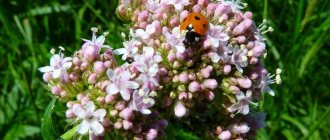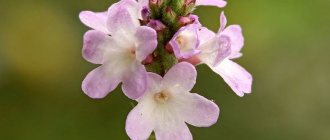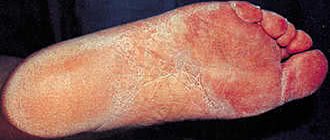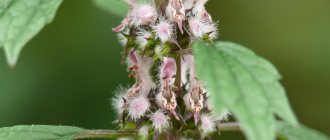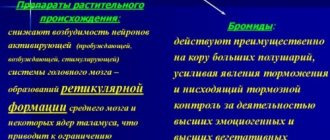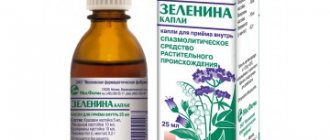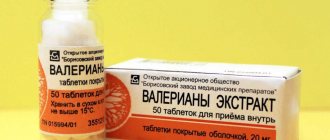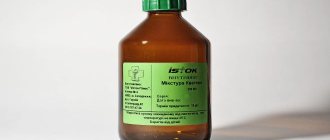There are contraindications, consultation with a specialist is required
Valerian officinalis (also jokingly called “Cat grass”) is a perennial herbaceous plant, numbering more than two hundred species and growing along the banks of reservoirs, in peat and grassy bogs, in clearings and forest edges throughout the European part of Russia. A pretty plant with white-pink, small flowers and leaves with jagged edges reaches a height of up to two meters, blooms almost all summer.
Since the times of Ancient Rus', this herb has been known for its healing properties. Therefore, it is effectively used both in traditional (evidence-based) medicine in the manufacture of medicines, and in folk (healing) medicine when using natural raw materials. Valerian officinalis is so in demand that it is sold in almost all pharmacy chains, is affordable and sold without a doctor’s prescription.
Both the main rhizome and auxiliary roots of this amazing plant are used for medicinal purposes. The roots and rhizomes have a sweetish-bitter taste, with a pronounced smell of valerian.
Pharmacodynamics and pharmacokinetics
herbal medicine . Depending on the dosage, the drug is characterized by a weak or moderate sedative effect on the human body, due to the effects of the essential oil , a significant part of which is an ester of isovaleric acid and borneol . The alkaloids of the tincture - hotenine and valerine and its compounds valepotriate - also have a calming and relaxing effect .
The sedative effectiveness of the drug develops slowly, depends on the dose and is stable. Valerian drops facilitate the process of entering natural sleep , stabilize its course and have virtually no effect on awakening.
In addition to the sedative effects, the drug exhibits a mild antispasmodic effect and a mild choleretic effect. Taking this drug has a beneficial effect on the secretory functionality of the gastrointestinal tract, dilates the vessels of the coronary system and reduces pathologically rapid heart rate. Stabilization of the activity of the heart muscle is determined by the influence of the active ingredient of the drug on the mechanisms of neuroregulation and its direct effect on the cardiac conduction system and heart automatism. Therapeutic effectiveness is formed with prolonged and systematic use.
How does valerian root work?
Valerian root is a common plant in traditional and folk medicine. Proponents of herbal medicine say that this herb has a relaxing effect that reduces anxiety, allowing you to rest.
A study conducted by Frontiers in Neuroscience found that people around the world recognize valerian as an effective sedative. However, researchers still do not fully understand the effects of this herb.
Compounds in the root appear to interact with important components of the nervous system, such as gamma-aminobutyric acid (GABA) (a chemical messenger in the brain).
A study published in BMC Complementary Medicine and Therapies noted that valerian root compounds, such as valerenic acid, can interact with GABA and its receptors to create a noticeable calming effect.
This is similar to how prescription sleeping pills such as diazepam (Valium) work.
However, how valerian interacts with GABA remains a theory.
Other experts believe that valerian has a calming effect due to the action of powerful antioxidants on areas of the brain associated with stress and emotions, such as the amygdala and hippocampus.
Analogs
Level 4 ATC code matches:
Alora
Motherwort extract
Novo-Passit
Cardiovalen
Liked
Carmolis
Lotusonic
Relaxil
Persen Forte
Persen
Phytosed
Sedavit
Motherwort Forte Evalar
Dormiplant
Sondox
Sedafiton
Peony tincture
Menovalen
Bromcamphor
Valerian rhizomes with roots
The most famous substitutes for this drug are herbal drip preparations, similar in their main action to Valerian Tincture: Corvalol , Motherwort , Hawthorn , Peony , Corvaldin , Valocordin , Barboval , Valecard .
Also very popular is a mixture of tinctures of valerian , motherwort , hawthorn , and peony .
You can combine these drugs yourself in equal proportions by purchasing all the tinctures separately at the pharmacy and mixing them in a larger glass bottle. You should start taking the prepared tincture of valerian, motherwort, hawthorn, peony with 10-15 drops and, if tolerated, increase the dose to a teaspoon.
Side effects of taking valerian root
When a person takes valerian, some side effects may occur. The sedative effect of valerian means that drowsiness may be a common side effect.
Although it is helpful for falling asleep at night, daytime sleepiness can affect a person's ability to function. People taking valerian and experiencing daytime sleepiness should reduce their dose.
Some people may experience the following symptoms:
- headache
- dizziness
- itchy skin
- stomach upset
Reviews
In the post-Soviet countries, Valerian Tincture has long and consistently received only positive reviews. The only relative disadvantage for some people is the alcohol included in the drug, as a result of which pregnant and lactating women are careful not to drink it.
Also, children do not like the taste of alcohol, as well as the smell of valerian, which is why the use of this tincture in children is limited. Otherwise, valerian drops have been characterized on the positive side for a long time, are included in almost every home medicine cabinet and have no equal in popularity on the pharmaceutical market.
What you need to know about valerian root?
People can take valerian root as a supplement.
Valerian root has a calming effect and reduces anxiety, making it a popular natural sleep aid and promoting calm. Valerian root may work for many, but not everyone. When taking valerian root, it is important to monitor for any side effects.
Everyone should consider talking to a doctor ahead of time about taking valerian root and treating any conditions they may have.
This article reviews the effectiveness of valerian root and discusses its uses, dosage, and more.
Price, where to buy
As a rule, the price of Valerian tincture does not differ much depending on the manufacturer, that is, as much as valerian drops cost from one manufacturer, it will cost the same from another. At this time, the price of 25 ml of tincture fluctuates around 10-20 rubles.
- Online pharmacies in RussiaRussia
- Online pharmacies in UkraineUkraine
ZdravCity
- Valerian tincture 25 mlAO Update PFK
97 RUR order - Valerian tincture 25ml JSC Moscow Pharmaceutical Factory
46 RUR order
- Valerian tincture fl. 25ml No. 1Kirovskaya f.f.
72 RUR order
Pharmacy Dialogue
- Valerian tincture (25ml bottle) MFF
42 RUR order
- Valerian tincture (flask 25ml)Flora of the Caucasus
28 RUR order
- Valerian tincture (25ml bottle) Camellia
45 rub. order
- Valerian tincture bottle 25ml Tverskaya FF
39 RUR order
- Valerian tincture (flask 25ml) Hippocrates
37 RUR order
show more
How else can valerian root help?
Some people use valerian root to treat their other symptoms, although there is little formal research on this.
Proponents may recommend valerian for problems such as:
- menstrual cramps
- stomach cramps
- headaches and migraines
- menopause symptoms
Some people may find valerian root an effective remedy for relieving these symptoms.
However, most research on valerian has focused on its use as a sedative, antioxidant, and anti-anxiety agent.
Who should not use valerian root?
Some people should avoid valerian root.
Valerian root may not be safe for pregnant or breastfeeding women, according to ODS.
Likewise, very young children under 3 years of age should avoid valerian. Even for older children, it is important to consult a doctor to determine the minimum effective dosage in each specific case.
Those who regularly drink alcohol should be aware of any interactions it may have with sedatives such as valerian. They should completely give up either alcohol or valerian.
Product effectiveness
Only the general extract of valerian has a therapeutic effect; individually its components give a very weak effect or do not have any effect at all. All forms of the drug have low biological activity, that is, the medication does not act immediately. The therapeutic effect occurs with long-term use, when the required level of the drug accumulates in the body.
Effectiveness appears after 2-3 weeks of continuous use. According to statistics, 89% of people, after using Valerian for a month, had normal sleep, irritability and emotional tension decreased. The medication is not suitable for emergency cases when you need to calm down, since a one-time dose has no effect.
Rules for use in adults
Before using the drug, you must check the expiration date. If it has expired or the medication is cloudy in color, it is better not to use it. Any expired medicine loses its healing properties.
The tincture is taken before meals, 20-30 drops, diluted with water (2-3 tablespoons), up to 4 times a day, washed down with a small amount of water. The maximum dosage of medication per day is no more than 100 drops.
The duration of treatment is up to 1 month. If prescribed by a doctor, it can be repeated after a break (1-2 weeks). The effect of the drug is weak and can be noticed only after 2-4 weeks. If you missed taking a medication during the day, you do not need to take an additional dose the next time; skipping 2-3 doses per course will not affect the final result.
For what diseases is Valerian drops used?
Most often, drops are prescribed for the complex treatment of diseases of the nervous, cardiovascular, and digestive systems. Indications:
- spasm in gastrointestinal pathologies;
- disruption of enzyme production in the gastrointestinal tract;
- violation of coronary circulation;
- hypertonic disease;
- sleep disturbance;
- increased anxiety.
In most cases, the drug is prescribed precisely as a sedative, which helps to cope with the tendency to depression, hysteria, and increased excitability of the nervous system.
Read more How to use Combigan eye drops - instructions and reviews
The reference book on medications states that Valerian helps reduce appetite, as it reduces the activity of the appetite center in the hypothalamus, so the drug can be used in the complex treatment of obesity. The medication also has anthelmintic and anti-inflammatory properties, but they have not been scientifically proven.
